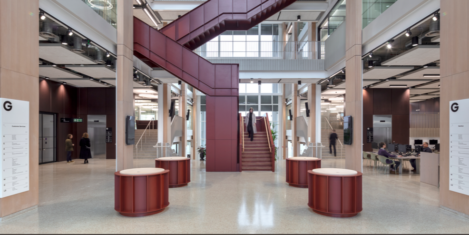To provide the best experiences, we use technologies like cookies to store and/or access device information. Consenting to these technologies will allow us to process data such as browsing behaviour or unique IDs on this site. Not consenting or withdrawing consent, may adversely affect certain features and functions.
The technical storage or access is strictly necessary for the legitimate purpose of enabling the use of a specific service explicitly requested by the subscriber or user, or for the sole purpose of carrying out the transmission of a communication over an electronic communications network.
The technical storage or access is necessary for the legitimate purpose of storing preferences that are not requested by the subscriber or user.
The technical storage or access that is used exclusively for statistical purposes.
The technical storage or access that is used exclusively for anonymous statistical purposes. Without a subpoena, voluntary compliance on the part of your Internet Service Provider, or additional records from a third party, information stored or retrieved for this purpose alone cannot usually be used to identify you.
The technical storage or access is required to create user profiles to send advertising, or to track the user on a website or across several websites for similar marketing purposes.
 The so-called cost of living crisis is having a fundamental impact on people’s working habits, according to Beamery’s latest Talent Index – Sixth Edition. Almost a third (29 percent) of workers polled for the report are now avoiding the office because of the increasing cost of travel whilst another third cited (31 percent) they were considering leaving their jobs completely due to lack of salary increases. More →
The so-called cost of living crisis is having a fundamental impact on people’s working habits, according to Beamery’s latest Talent Index – Sixth Edition. Almost a third (29 percent) of workers polled for the report are now avoiding the office because of the increasing cost of travel whilst another third cited (31 percent) they were considering leaving their jobs completely due to lack of salary increases. More →

































September 30, 2022
There is no F in work
by James Woudhuysen • Comment, Flexible working, Wellbeing, Workplace design
More →